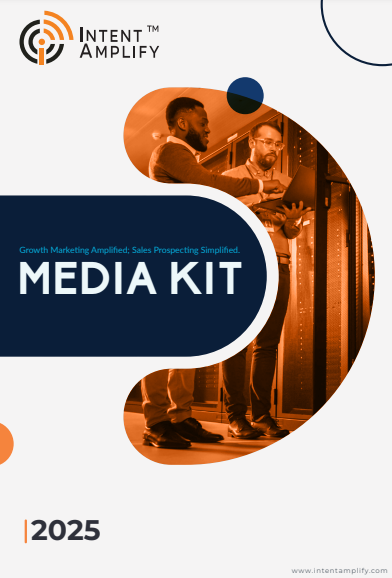
Top 10 B2B FinTech Organizations in the US (2025 Edition)
- Last updated on: August 5, 2025
B2B FinTech organizations are transforming how businesses deal with payments, lending, investing, and digital finance activities. With disruptive technologies already built and ready to scale, organizations can automate their financial workflows, manage cash flow efficiently, and better serve their customers. As businesses begin to adopt embedded finance and cloud-native technologies, choosing the right fintech partner is now a critical business decision.
The US is the most significant and active hub for financial technology innovation in the world, and it is home to some of the most influential B2B fintech leaders in the world. In this article, we will consider the 10 most transformative and impactful B2B FinTech organizations in the US that are helping businesses flourish in the digital economy.
What Makes a Great B2B FinTech Organization?
A great B2B FinTech Organization does more than offer a digital payment system to send payments or lending solutions like a finance company. They create scalable financial ecosystems built to serve enterprise business desires. B2B FinTech Organizations focus on complex financial needs like real-time payments, regulatory compliance, non-traditional credit, cross-border payments, and raising investment capital.
Some core B2B FinTech Organizations characteristics are that they should prioritize innovation, with many leveraging AI, machine learning, and machine-optimal blockchain to provide things quickly and better. An essential characteristic many organizations do not consider is integration because B2B FinTech solutions typically require integration with existing ERP, CRM, and/or accounting systems that the enterprise has. Compliance and security are prevalent in many B2B FinTech case studies.
Financial transactions must ensure compliance with PCI DSS or SOC 2 and protect sensitive customer data. Most enterprise organizations value flexibility and scalability, and B2B FinTechs should keep up with customer needs across different organizations and sectors without sacrificing performance. Better B2B FinTech companies also have placed emphasis on customer experience, typically with easy-to-use/explain platforms and robust API ecosystems, so developers or enterprise organizations have the ability to create bespoke financial products and services.
These characteristics are what separate B2B FinTech innovators from typical apps that offer consumer-facing financial solutions, institutionalizing the B2B FinTechs as key modern partners to support enterprise-wide financial efficiency to achieve faster, better financial outcomes and/or strategic benefit.
The List of Top B2B FinTech Organizations in the US
1. Stripe
Stripe is viewed as one of the most innovative B2B FinTech organizations in the USA. It provides access to a powerful payment infrastructure to organizations of all sizes. Stripe has established itself as developer-friendly, a rapidly scalable option with its global network, and is appealing for companies in any vertical to use for their payment and financial infrastructure needs.
Stripe has always excelled in enabling scalability. From the smallest startups to the largest Fortune 500 Companies, Stripe processes billions of transactions and provides fraud detection. As well as it does notable integrations with numerous ERP and CRM applications. All within the same platform. Stripe also enables embedded finance so that businesses can customize and provide multiple payment flows and financial products without necessarily incurring high development costs.
For enterprises, Stripe is an attractive option, as it avoids vendor lock by offering automation compliance within a rapidly changing environment and is incredibly beneficial for enterprises that are operating in multiple regions. By depending on Stripe, enterprises can now create an all-in-one financial infrastructure. Once enterprises facilitate Stripe‘s development of their financial services, such as banking-as-a-service and supplier lending, the world of payment methods is increasingly comparable.
2. PayPal
PayPal is one of the best-known B2B FinTech organizations in the world, with a secure and reliable digital payments ecosystem that enterprises and SMBs trust. It is easy to use and operate, and has the most penetration in the industry, allowing businesses to maintain the capability to accept online payments, manage cross-border transactions, and easily payout vendors with its enterprise-grade solutions.
The company is strong on B2B e-commerce and marketplace transactions, and has integrations with ERP systems, e-commerce platforms, and accounting tools. Braintree also helps enterprises as it has enterprise-level payment processing abilities and helps provide a streamlined checkout experience, as well as the ability to accept multiple payment methods, digital wallets, and cryptocurrencies.
In 2024, PayPal processed more than $1.53 trillion in total payment volume and has scale and trust with businesses globally. However, enterprises are looking to ensure they have a reliable, globally accepted payment gateway that provides fraud protection and a simple way to manage cross-border payments.
3. Block, Inc.
Block Inc. is providing unique and innovative solutions for businesses of all sizes. Recently, it has emerged as one of the top B2B FinTech organizations in the United States. Their ecosystem encompasses payment processing, business banking, payroll, lending, and powerful financial analytics; it is a one-stop shop for enterprises that manage in-person and online transactions.
Block’s primary strength is its combined payment processing hardware and software. This proprietary hardware and software allow businesses to process secure payments in a seamless manner anywhere they do business, and offer enterprise-quality fraud prevention and compliance tools. Their easy APIs and integrations to major e-commerce platforms provide businesses with customized financial workflows in today’s modern business world.
Additionally, with Block‘s Cash App ecosystem and acquisition of Afterpay, they have expanded their offerings to enable businesses to provide flexible and innovative Buy Now Pay Later (BNPL) solutions to their customers, which has also been recognized to improve sales and customer satisfaction. SMBs and growing enterprises are looking for an all-in-one platform that combines payments, financial services, and customer-focused financial innovations.
4. Fiserv
Fiserv is one of the most prominent B2B FinTech organizations in the United States, and it has developed solutions to safely and securely deliver financial technology to banks, credit unions, and enterprises. Founded in 1984 and with decades of operational experience, it developed a distinct specialty in payment processing, core banking systems, card issuing, and merchant services, thereby providing the secure, scalable infrastructure for supporting mission-critical financial operations.
It is arguably most effective at helping enterprises or financial institutions modernize existing, often legacy systems, while also adopting newer solutions such as digital banking, real-time payments, and advanced fraud prevention measures. Its solutions are cordially flexible and allow an enterprise to integrate existing ERP and accounting systems with modernized solutions.
Similarly, Fiserv also incorporates compliance, risk, and operational positions into its offerings and interactions with clients, positioning itself as a trusted partner for organizations operating in highly regulated environments. Included in their adaptable solutions offered is a Clover point-of-sale platform for enterprises searching for a structured, customer-facing payment solution to fit customer desirability. Enterprises and financial institutions see value in using a trusted financial technology partner to lead enterprise-grade alternatives to enhance their ability to offer proven technology on a scale, safely, and compliantly.
5. Plaid
Plaid is providing secure financial data connectivity between banks, fintech applications, and businesses throughout the US. Its platform allows enterprises and developers to connect user bank accounts with financial applications seamlessly. It powers a wide range of services. These include digital banking, lending, expense management, and personal finance tools. Because of this, Plaid has become one of the most influential B2B FinTech organizations in the US.
Plaid’s APIs are designed for scalability and security, enabling businesses to quickly integrate account verification, transaction data, and identity authentication into their applications. This has made it a key infrastructure provider for fintech innovators and enterprises seeking to build new financial services or enhance existing ones.
With partnerships across thousands of financial institutions, Plaid continues to be a critical enabler of open banking and embedded finance solutions in the US. Its focus on secure, reliable connectivity and regulatory compliance has solidified its reputation as a trusted B2B partner. Enterprises and fintech developers are building financial applications requiring secure, fast, and compliant access to consumer and business banking data.
6. Robinhood
Robinhood is known for democratizing retail investing, and now it is emerging as one of the B2B FinTech companies in the United States. It has been developing institutional partnerships and financial infrastructure. It is also allowing companies to utilize the company’s clutch of trading technology as well as its API driven investment solutions.
Robinhood’s brokerage-as-a-service model enables embedding core commission-free trading features into their platform. It can be helpful for new fintech startups, wealth management firms, and financial institutions. They embed core commission-free trading features into their platform. Through Robinhood’s API ecosystem, a company can access both equity and cryptocurrency markets. Also, the company can earn money for usage, meaning they can achieve the capabilities of a modern-day investment bank without having to build trading infrastructure from the ground up.
Robinhood has only served retail clients. The move to support enterprises signals how fintech vendors can support clients who consist of individuals. Also, as firmly support business clients. Robinhood’s B2B service is attractive if a trade vendor is trying to find ways to provide all options for investments. Also for their customers and clients. With an uncomplicated and nice financial structure.
7. Coinbase
Coinbase is widely recognized for its secure and scalable cryptocurrency infrastructure. While known primarily as a consumer crypto exchange, Coinbase has a strong enterprise offering through Coinbase Prime and Coinbase Cloud, designed specifically for institutional and B2B use.
Coinbase Prime provides secure custody, advanced trading tools, and deep liquidity. It is useful for institutional investors, fintechs, and businesses exploring crypto as an asset class. Coinbase Cloud, on the other hand, delivers blockchain infrastructure and developer APIs. This is eventually enabling companies to build crypto-based applications, integrate digital assets into their platforms, and access blockchain networks with ease.
With a strong emphasis on compliance, risk management, and regulatory alignment, Coinbase has become one of the trusted B2B FinTech organizations for enterprises seeking to innovate in the blockchain and digital asset space. Its institutional services allow businesses to securely manage crypto portfolios and leverage blockchain capabilities without building in-house infrastructure.
8. Affirm
Affirm is one of the most well-known B2B FinTech organizations in the Buy Now, Pay Later (BNPL) space, providing businesses with additional consumer financing solutions that increase conversion rates and consumer satisfaction. By offering mid-risk consumers transparent, interest-free, or low-interest installment payment options, merchants can increase purchasing power for consumers while reducing exposure to credit risk.
Affirm offers several choices for businesses. Choices include seamless integration with various e-commerce platforms and Application Programming Interfaces (APIs) to create customized financing workflows. Also, it includes robust analytics to monitor program performance. Affirm is answering the demand of consumers for fair and flexible financial products with transparency in pricing. This means no hidden fees and no compound interest in their payment options.
Affirm has built out the program for enterprise retailers and marketplace businesses. Eventually, it allows them to offer flexible payment solutions that service a broader customer base. It has become an attractive partner for businesses that want to provide payment solutions. These solutions can help businesses grow and deepen customer loyalty while not adding the direct burden of providing lending.
9. Brex
Brex offers scaling companies and enterprises a modern way to manage their financial operations. It is NOT just another corporate credit card company that offers a simple credit card product.. It integrates business credit cards, spend management, expense tracking, and banking solutions in one platform. Eventually, it creates a single ecosystem of all things “money”. As such, Brex is an extremely fast-growing B2B FinTech company built for startups.
Brex’s platform combines business credit, spend management, and expense tracking products. It provides customers with financial visibility and control over expenses through real-time analytics and automated reporting. Brex connects to leading ERP and accounting systems to streamline workflows, leverage integrations to simplify expense reconciliation. It also improves compliance across the organization. It also provides tailored rewards on spending and flexible credit limit arrangements, which means that you will not outgrow Brex as your business evolves and grows. Brex is a very attractive alternative to antiquated financial solutions.
Brex uses API and user experience strategy to demonstrate how digital technology can be powerful for the adoption of a digital-first financial infrastructure. That enables progressive workflows compared to the numerous constraints of performative banking behaviors. Brex is Best For Startups, SaaS companies, and Enterprises looking for modern expense. Also, it is helpful for corporate credit management solutions that operate disciplined digital workflows.
10. SoFi
SoFi began as a student loan refinancing company. But today, they are one of the most dynamic B2B FinTech organizations in the US. Now they offer a full suite of financial products. This suite includes lending, banking, investing, and insurance products. And extends their capabilities to businesses with SoFi at Work and SoFi Lending APIs.
For businesses, SoFi offers employee financial wellness plans. These allow companies to include things such as student loan repayment, personal loans, and financial planning in one benefit package. SoFi’s lending APIs allow fintech companies to embed credit products into their accounting systems and launch competitive and new products faster on the market.
SoFi has a digital-first approach, ease of use, strong customer experience, and competitive financial products. It makes it attractive to companies that want to provide better ancillary employee financial benefits or financial products.
Conclusion
B2B FinTech Organizations are driving growth. And reshaping how enterprises will approach their payments, lending, investing, and financial operations moving forward in the US. These ten organizations, both established names and innovative companies, are operating the platforms. Enabling businesses to automate and realize financial workflows, expand customer offerings, and adopt a digital-first approach. Whether that requires building a great seamless payment infrastructure, integrating blockchain capabilities, or providing working capital financing. These and other fintech innovators are changing the game for enterprises in the space.
Deciding which fintech organization to partner with will depend on priorities, business objectives, technology infrastructure, and growth plans. However, these organizations provide a great foundation to enable enterprises to build future-proof ecosystems. For enterprises that want to maintain a competitive edge in 2025 and beyond. Partner and innovate with amazing B2B fintech partners to build a strategic imperative for growth and future resilience.
FAQ
1. What is a B2B FinTech organization?
A B2B FinTech organization provides financial technology solutions designed specifically for businesses, not individual consumers.
2. Which is the top B2B FinTech company in the US?
Stripe is widely considered the top B2B FinTech organization for its scalable payment infrastructure and developer-friendly tools.
3. Are these fintech organizations regulated?
Yes, most B2B fintech companies comply with strict financial regulations and industry standards like PCI DSS and SOC 2.
4. How do B2B fintechs benefit enterprises?
They help automate financial processes, improve cash flow, reduce costs, and enhance customer experiences with digital-first solutions.
5. Is partnering with a fintech organization expensive?
Costs vary by provider and features, but most offer scalable pricing to fit different business sizes and needs.



